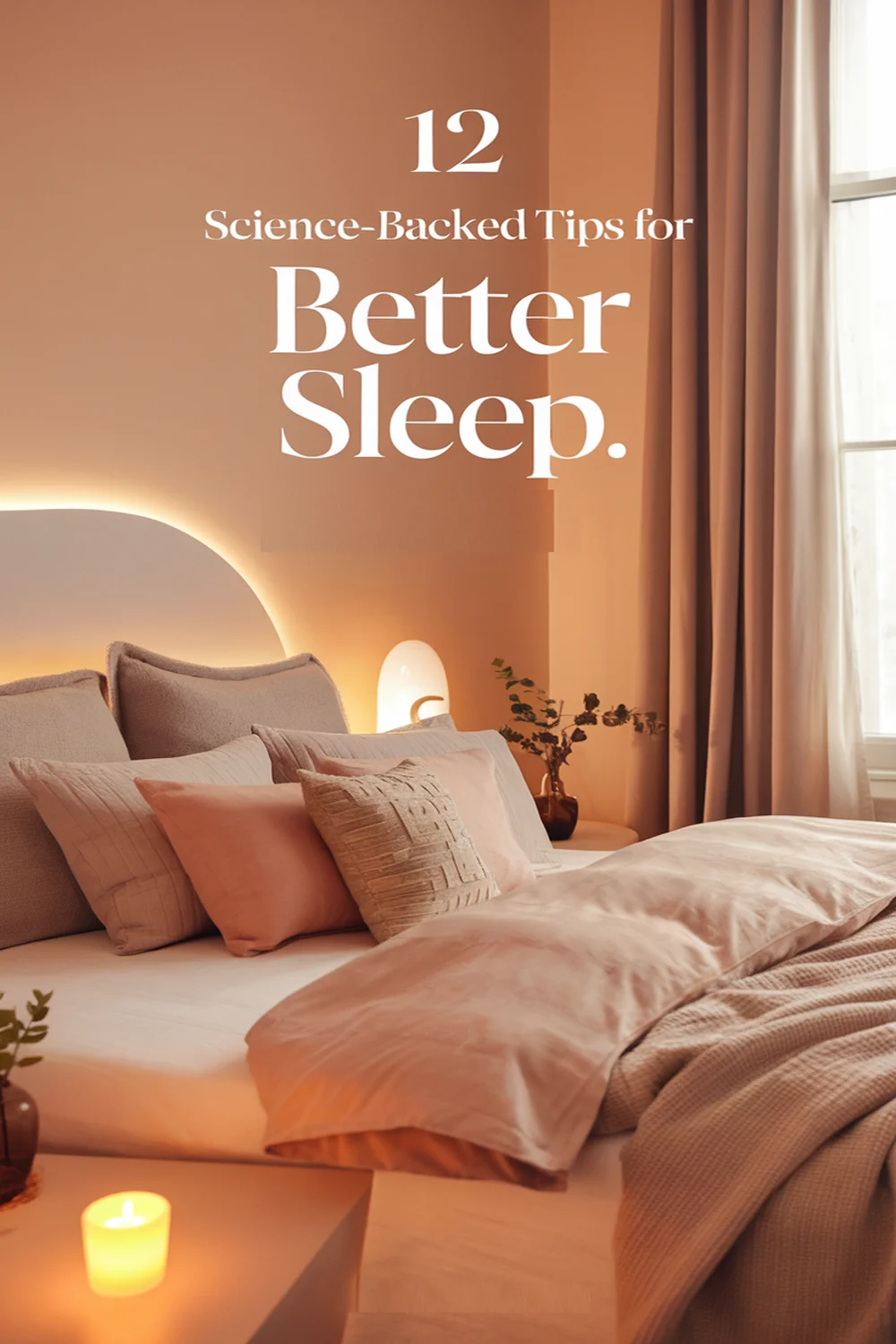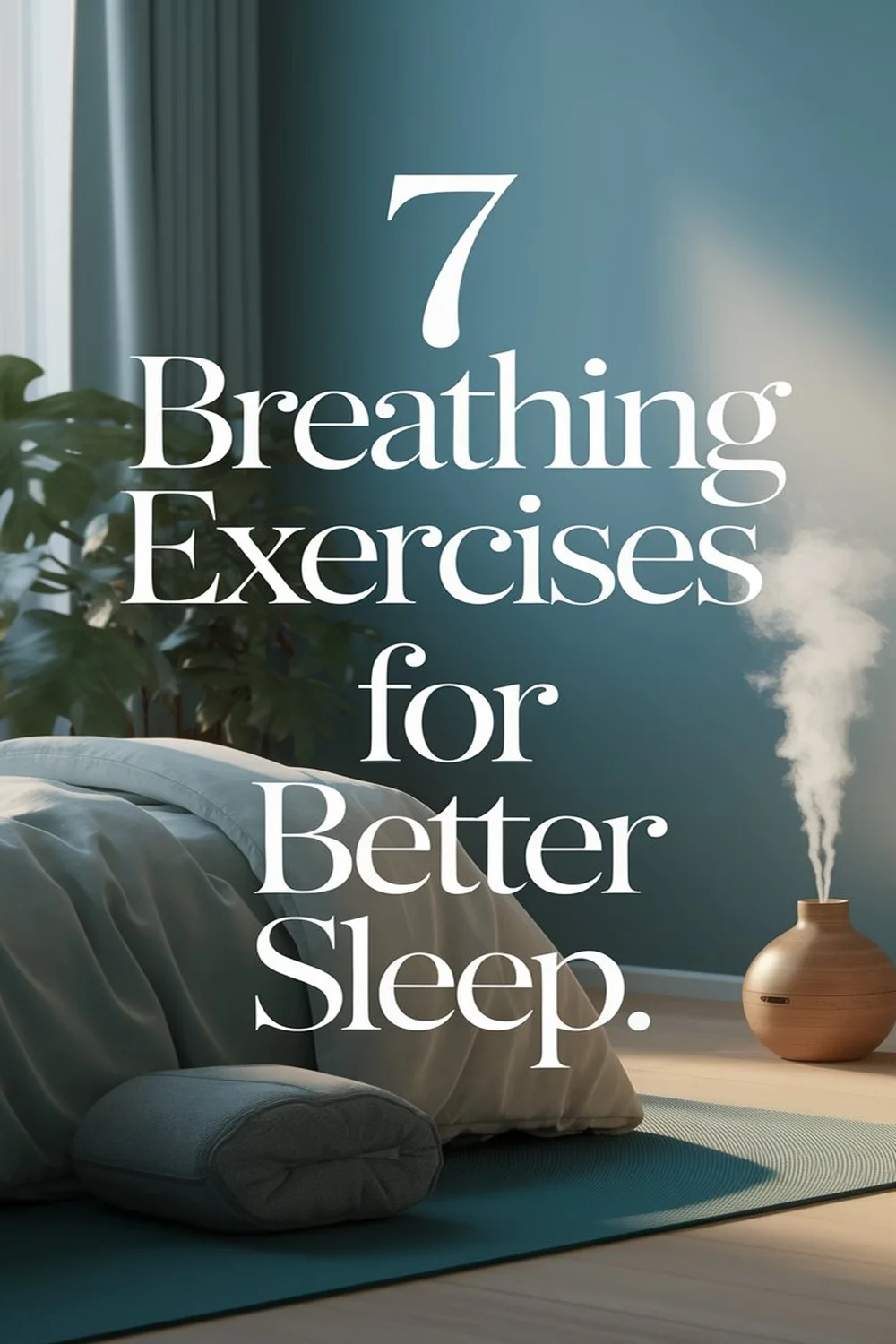To improve your sleep, establish a consistent sleep schedule and create a relaxing bedtime routine. Optimize your sleep environment by managing temperature and light. Limit exposure to blue light before bed and be mindful of your dietary choices, particularly caffeine and alcohol intake. Use your bedroom solely for sleep and intimacy, and consider supplements wisely. If sleep issues persist, seeking professional help is essential. Explore these strategies further for more insights into better sleep.
Establish a Consistent Sleep Schedule
When you establish a consistent sleep schedule, you’re not just creating a routine; you’re fundamentally training your body to rest effectively. Research shows that maintaining regular sleep and wake times reinforces your circadian rhythm, leading to improved sleep quality. By going to bed and waking up at the same time each day, you signal your internal clock, enhancing the release of melatonin when it’s time to sleep. This consistency can reduce grogginess and boost alertness during the day. Additionally, inconsistent sleep patterns are linked to higher risks of sleep disorders and metabolic issues. Thus, prioritizing a consistent sleep schedule is essential not only for effective rest but also for overall health and well-being.
Create a Relaxing Bedtime Routine
Creating a relaxing bedtime routine can substantially enhance your ability to fall asleep and improve overall sleep quality. Research shows that engaging in calming activities before bed can lower cortisol levels, a hormone linked to stress. Consider incorporating activities like reading, gentle stretching, or deep breathing exercises into your routine. Aim to start this routine about 30 to 60 minutes before sleep. Limiting screen time during this period is essential, as blue light can disrupt melatonin production. Also, consider keeping your bedtime consistent to signal your body that it’s time to wind down. By effectively reducing your alertness and promoting relaxation, you set the stage for a smoother shift into sleep, ensuring you wake up feeling refreshed.
Optimize Your Sleep Environment
A well-balanced sleep environment plays an essential role in your ability to achieve restful sleep. Research highlights that your surroundings directly impact sleep quality. Here are key factors to take into account:
- Temperature: Keep your bedroom between 60-67°F (15-19°C) for ideal comfort.
- Noise: Use white noise machines or earplugs to block disruptive sounds.
- Light: Make sure your room is dark; think about blackout curtains or eye masks to enhance melatonin production.
- Bedding: Invest in a quality mattress and pillows tailored to your sleep position for better support.
Recommended Items
Discover our favorite health and wellness essentials for a restful night’s sleep—take a look!
Limit Exposure to Blue Light
Exposure to blue light, particularly in the evening, greatly disrupts your sleep patterns and can hinder melatonin production. Studies show that devices like smartphones, tablets, and computers emit significant amounts of blue light, which interferes with your body’s circadian rhythm. This interference can lead to difficulties falling asleep and reduced sleep quality. To combat this, consider setting a digital curfew by turning off screens at least one hour before bedtime. You can also use blue light filters on your devices or wear specialized glasses that block blue light. By limiting your exposure, you’ll help your body produce the melatonin needed for a restful night’s sleep and wake up feeling more refreshed. Prioritize your sleep health by making these changes tonight.
Be Mindful of Your Dietary Choices
While you might not realize it, the foods you consume can greatly impact your sleep quality. A balanced diet can improve sleep, while certain foods can disrupt it. To enhance your rest, consider the following dietary choices:
- Avoid caffeine in the afternoon and evening.
- Limit heavy, rich meals close to bedtime.
- Incorporate sleep-promoting foods like cherries, bananas, and almonds.
- Stay hydrated, but cut back on fluids an hour before sleep.
Research shows that a diet rich in fiber and low in saturated fats leads to deeper sleep. Conversely, high sugar intake may lead to sleep disturbances. By being mindful of these dietary factors, you’ll set the stage for a better night’s sleep. Your choices matter—make them count!
Incorporate Regular Physical Activity
Incorporating regular physical activity is essential for improving your sleep quality, as studies consistently show a strong link between exercise and better rest. Engaging in aerobic exercises like walking, running, or cycling can reduce sleep onset time and increase deep sleep phases. Aim for at least 150 minutes of moderate exercise each week for ideal results.
| Type of Exercise | Sleep Benefits |
|---|---|
| Aerobic exercise | Reduces sleep onset time |
| Strength training | Enhances overall sleep quality |
| Yoga or stretching | Improves relaxation and sleep depth |
| Consistency in routine | Regulates circadian rhythms |
Make exercise a regular part of your day, but try to finish at least a few hours before bedtime to maximize its sleep benefits.
Step-by-Step Guide for Better Sleep
Manage Stress and Anxiety
Exercise helps alleviate stress and anxiety, which are significant barriers to quality sleep. Engaging in physical activity triggers the release of endorphins, improving mood and promoting relaxation. To effectively manage stress and anxiety, consider these strategies:
- Practice mindfulness meditation to enhance focus on the present.
- Establish a consistent routine to create a sense of stability.
- Limit exposure to screens before bedtime to reduce mental stimulation.
- Incorporate deep breathing exercises to activate your body’s relaxation response.
Keep Naps Short and Strategic
Naps can be a powerful tool for enhancing alertness and performance when used wisely. To reap the benefits, keep your naps short—ideally between 10 to 20 minutes. Research shows that this duration boosts alertness without causing sleep inertia, the grogginess often felt after longer naps.
Timing is also essential; aim to nap in the early afternoon when your body naturally experiences a dip in energy. Avoid napping late in the day, as it can interfere with your nighttime sleep.
Consider your individual needs and schedules. If you find yourself frequently needing naps, it might indicate insufficient nighttime sleep. By being strategic with your napping habits, you can maximize their effectiveness and support your overall well-being.
Limit Caffeine and Alcohol Intake
Many people don’t realize that limiting caffeine and alcohol can greatly improve sleep quality. Both substances can interfere with your sleep cycles and overall restfulness. Here’s how you can benefit from reducing their intake:
- Caffeine can stay in your system for up to 8 hours, disrupting your ability to fall asleep.
- Alcohol might help you doze off faster, but it can lead to fragmented sleep patterns.
- High caffeine consumption is associated with increased insomnia symptoms.
- Too much alcohol before bed can worsen sleep apnea and snoring.
Use Your Bedroom Only for Sleep and Intimacy
Creating a bedroom environment solely for sleep and intimacy can greatly enhance your overall restfulness. When you use your bedroom primarily for these purposes, you help your brain associate the space with relaxation, improving sleep quality. Research suggests that forming specific associations with your environment can lead to better sleep outcomes.
Here’s a simple way to visualize the impact of room usage:
| Activity | Effect on Sleep | Recommendation |
|---|---|---|
| Watching TV | Stimulates mind | Avoid in the bedroom |
| Working | Increases stress | Designate a workspace |
| Sleeping | Promotes rest | Keep this as a priority |
Consider Sleep Supplements Wisely
While sleep supplements might seem like a quick fix for restlessness, it’s important to approach them with caution. Many people overlook their potential side effects and interactions with other medications. Here are some key points to take into account:
- Efficacy: Not all supplements have strong scientific backing for improving sleep quality.
- Dosage: Identifying the right dosage can vary widely between individuals.
- Natural vs. Synthetic: Natural supplements like melatonin can be less harmful, but may not always be effective.
- Short-term Use: Relying on sleep aids long-term can mask underlying issues rather than address them.
Before starting any supplement, it’s vital to research and consult a healthcare professional to verify it’s a wise choice for your individual needs.
Seek Professional Help When Necessary
If you’re struggling with persistent sleep issues, seeking professional help can be essential in identifying underlying causes and effective treatments. Sleep disorders like insomnia or sleep apnea often require specialized assessments, including sleep studies. A healthcare provider can conduct these tests to determine the nature of your sleep problems and recommend evidence-based interventions. Cognitive-behavioral therapy for insomnia (CBT-I) has shown significant effectiveness, addressing harmful thoughts and behaviors associated with sleep. Additionally, professional guidance can help rule out medical conditions exacerbating your sleep issues, such as anxiety or depression. Engaging with a specialist not only enhances your understanding of sleep mechanisms but also tailors solutions to your specific needs for a more restful night. Prioritize your sleep; consult a professional when necessary.











